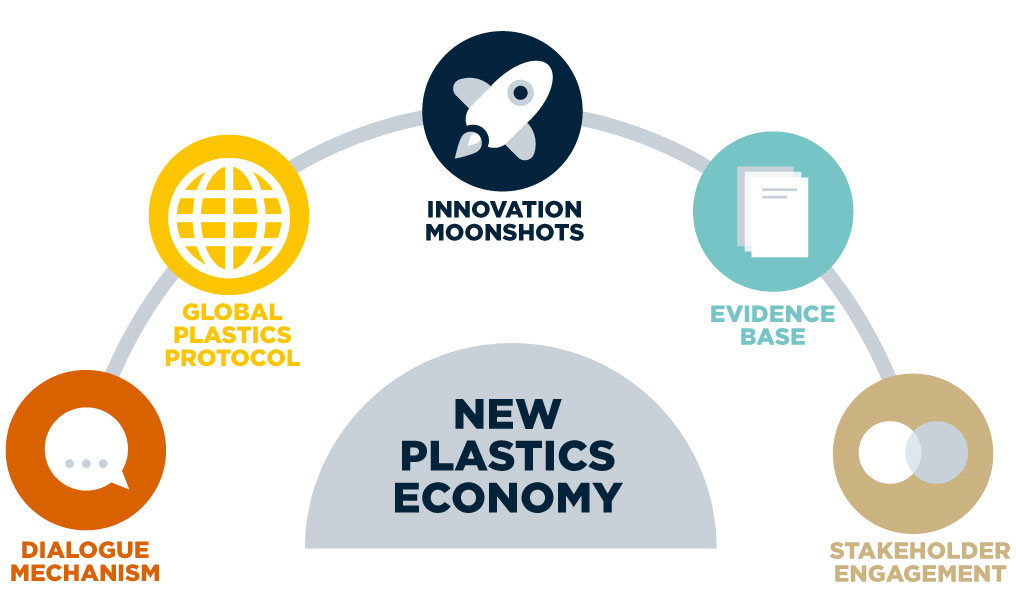The New Plastics Economy: Rethinking the Future of Plastics
The New Plastics Economy outlines a plan for a redesign of plastic packaging and plastics in general.
Summary
Plastics are fundamental to our everyday life. Yet they are one of the most wasteful examples of our existing linear, take-make-dispose economy. With 8 million tonnes of plastic entering the ocean each year, we urgently need to rethink the way we make, use, and reuse plastics. Catalysing change through collaboration in this global material flow will not only create a more effective plastics system, but will also demonstrate the potential for a wider shift from a linear to a circular economy – an economy in which plastics never become waste.
Visit website
About the initiative
The New Plastics Economy is an initiative to build momentum towards a plastics system that works. Applying the principles of the circular economy, it brings together key stakeholders to rethink and redesign the future of plastics, starting with packaging. The initiative is led by the Ellen MacArthur Foundation in collaboration with a broad group of leading companies, cities, philanthropists, governments, academics, students, NGOs, and citizens.
The initiative is supported by Wendy Schmidt as Lead Philanthropic Partner, MAVA Foundation, Oak Foundation, players of People’s Postcode Lottery (GB), and GEF as Philanthropic Funders. Amcor, The Coca-Cola Company, Danone, MARS, Novamont, L’Oréal, PepsiCo, Unilever, and Veolia are the initiative’s Core Partners.
The New Plastics Economy initiative focuses on five interlinked and mutually reinforcing building blocks:

- Dialogue Mechanism – Bringing together, for the first time, a group of over 40 leading companies and cities across the global value chain to complete collaborative pioneer projects and inform the other building blocks.
- Global Plastics Protocol – Providing a common target state to innovate towards, to overcome existing fragmentation and enable the creation of effective markets.
- Innovation – Mobilising innovations that can scale globally to redefine what’s possible and create the conditions for a new economy
- Evidence Base – Building an economic and scientific evidence base to guide improvement and inform the global debate
- Stakeholder Engagement – Engaging a broad set of stakeholders, including academics, students, governments, NGOs, and industry associations in the design of a better plastics system
Reports
- 2016 report: Rethinking the Future of Plastics
- 2017 report: Catalyzing Action
- Spring 2019 report: Global Commitment Report
Published by
Ellen Macarthur Foundation, 2016



